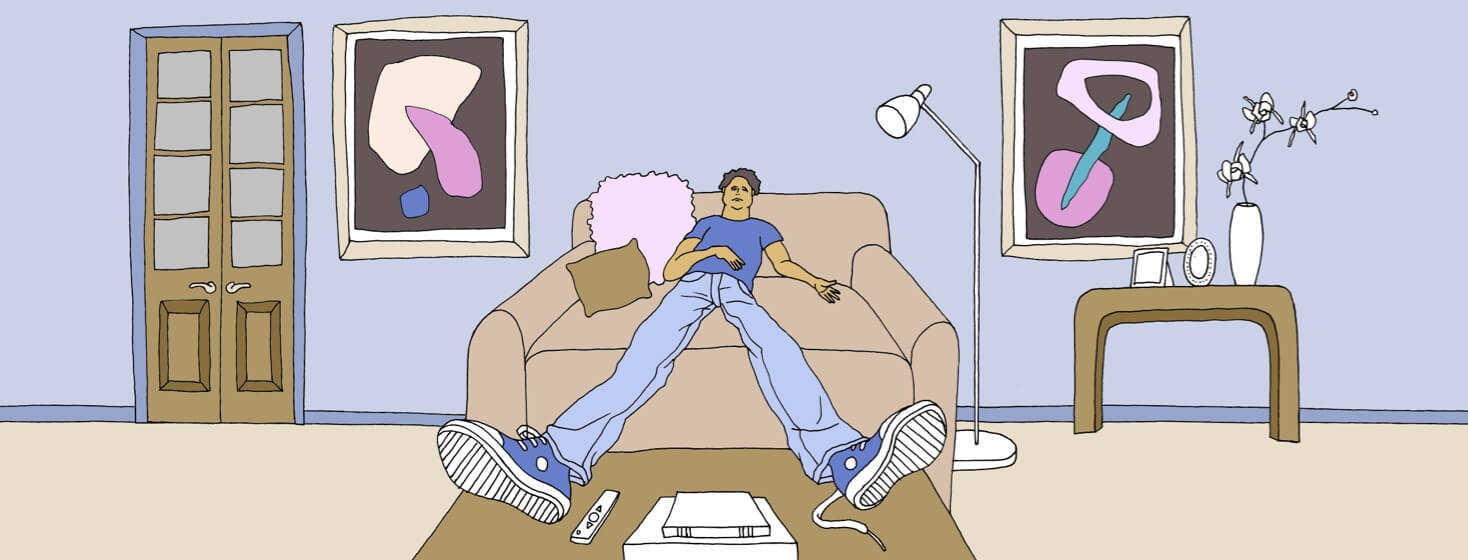What to Know About Motivation and Schizophrenia
An intense lack of motivation to do things is called avolition. This can be a symptom of different mental health diseases, including schizophrenia. This lack of motivation can be confused with laziness or procrastination. However, the underlying reason for lack of motivation due to schizophrenia is different from laziness or procrastination.1
When someone is procrastinating or being lazy, they try to avoid doing a task by looking for distractions. On the other hand, a person with avolition does not have the motivation to do things. Avolition can make it harder to do everyday tasks like keeping a job or preparing food. This lack of motivation can mean that a person stops doing most activities. This includes activities that they may have enjoyed previously.1
This or That
Do you struggle with low motivation?
Lack of motivation and schizophrenia
The symptoms of schizophrenia can be divided into positive and negative symptoms. Positive symptoms include any abnormal emotion or behavior that is only present in people with schizophrenia. Negative symptoms include any healthy emotion or behavior that is missing in people with schizophrenia. Avolition is a negative symptom of schizophrenia because it is a lack of motivation.1
Lack of motivation is considered an important symptom of schizophrenia. A general lack of motivation to do most tasks will negatively affect many areas of life. For example, maintaining relationships and healthy habits or following a treatment plan all require motivation.1
What is the cause of this symptom?
Studies have been done to find the root cause of the lack of motivation. We do not know exactly what causes avolition in people with schizophrenia. Research shows a few possibilities that might explain the reason behind the lack of motivation.1-3
- Low expectations about being able to do the task successfully
- The task requires too much effort
- Not being able to foresee the reward after performing a task
How to identify a lack of motivation
Occasional lack of motivation to do a task is not a reason for concern. But if lack of motivation is stopping you from doing most everyday tasks, then it might be a symptom of a mental health disorder. A mental healthcare provider can look at your behaviors to figure out if you might be experiencing a lack of motivation as a symptom. Some activities that can get neglected because of a lack of motivation include:1
- Personal hygiene like showering, brushing teeth, etc.
- Preparing food
- Going to work or school
- Paying bills
- Doing social activities
People experiencing a lack of motivation are more likely to spend most of their time at home and alone. They participate in fewer activities and prefer activities that require low effort, like watching TV. These behaviors can be common in people with depression or other illnesses. However, people with a lack of motivation due to schizophrenia usually do not experience depressed or anxious moods.1
How to manage lack of motivation due to schizophrenia
Therapy is a common option for treating a lack of motivation. Cognitive behavioral therapy (CBT) focuses on the relationship between negative thoughts and behaviors. By talking to a therapist, you can find negative thoughts and behaviors that might be the cause for your lack of motivation. The therapist can provide different techniques to change negative behaviors.1-3
This or That
Do you have a therapist right now?
Antipsychotic drugs are used to treat the positive symptoms of schizophrenia. These drugs have no effect on the negative symptoms. Most treatments focus on getting rid of positive symptoms of schizophrenia since they are more obvious. It is difficult to create drugs that can treat negative symptoms like lack of motivation, especially if the root cause is unknown.1
It's a symptom, not a shortcoming
An intense lack of motivation to do most tasks can make it even harder to seek therapy or keep up with a treatment plan. Keep reminding yourself that your lack of motivation is because of a mental health disorder, not a personal shortcoming.1-3
Prioritize your tasks and focus on the most important tasks first. Ask for help from family members and friends instead of not doing something important. With medications and therapy, symptoms of schizophrenia, including lack of motivation, can be managed.1-3
